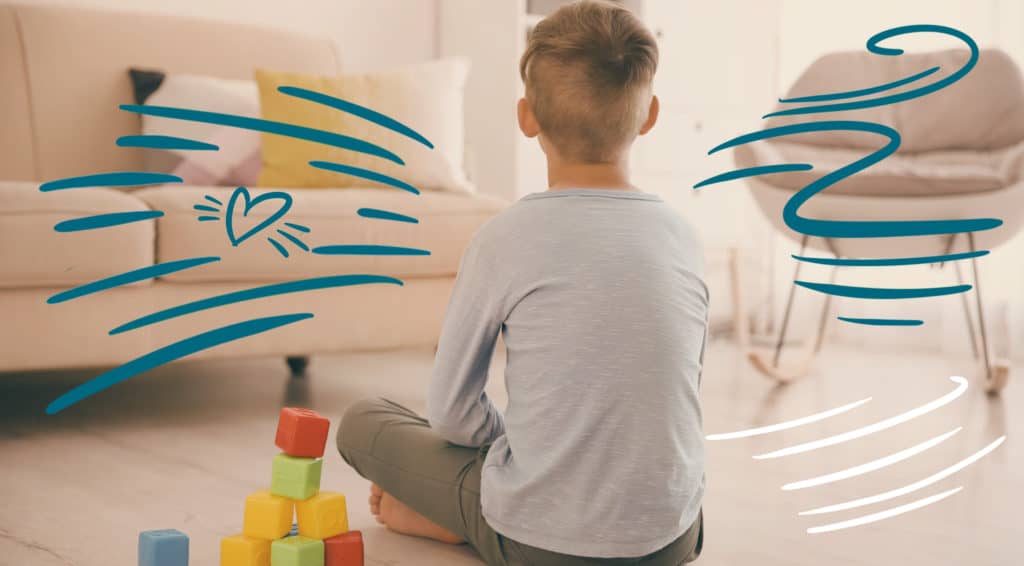
What Is Homeschooling? Is It Right for Me?
Let’s be honest: Homeschooling isn’t for everyone. Here is a look at what homeschooling is, and several ways to determine if it’s best for your family.

For those of you with children with special needs, here are some tips that may help your children hold on to the recent gains they’ve made in school and in therapy sessions, while they’re learning at home.
My friend Addie has a son diagnosed with autism. I watched as she spent months working with her son Micah’s local school principal, support team members, outside therapists, and teachers to write a plan that would encourage his success as he started in a new school. He did well throughout the Fall semester, meeting short term goals and learning how to connect with his peers. This took a lot of time and effort on the part of Addie, Micah, and his support team members, all of whom were very encouraged to see Micah making steady progress. And Addie shared her excitement with me when Micah adjusted well to a new schedule that started in January.
But that all came to a halt recently when Addie’s school district made the decision to send all of the students home for two weeks, or maybe more.
Change is hard for all of us but can be especially difficult for children with special needs and their parents. As they struggle to manage the specific challenges that come with their special circumstances, they experience an ebb and flow of difficulties and successes along the way. What’s more, there’s a lot of red tape to cut through related to systems and processes that are not always set up to accommodate their unique needs in a helpful way. I could hear the frustration and disappointment in Addie’s voice when she asked me, “Why did this have to happen now, when I finally found a school that understands Micah and he was starting to get it?” Then, through tears she added, “Nothing ever works out. Here we go again.”
We’ve all been there, haven’t we, when it seems to be one closed door after another? Our Lord understands and God’s word reminds us:
“When the righteous cry for help, the Lord hears and delivers them out of all their troubles. The Lord is near to the brokenhearted and saves the crushed in spirit. Many are the afflictions of the righteous, but the Lord delivers him out of them all” Psalms 34:17-19 (ESV).
So how can Addie help Micah at home and keep him moving in a positive direction, especially since his outside therapy sessions have also been cancelled? How can friends and family members of parents who have children with special needs help? These are questions that are likely on the mind of many parents and those who love them because Addie is not alone.
According to the National Center for Education Statistics (2019), approximately 14 percent of children in public schools receive special education services. These children have a variety of physical, emotional, behavioral, and/or learning disabilities. The number of children with special needs in America is likely much higher than 14 percent as many people send their children with special needs to private schools or choose to homeschool their children when they are unable to find a school environment that can meet their child’s specific needs.
For those of you with children with special needs, here are some tips that may help your children hold on to the recent gains they’ve made in school and in therapy sessions, while they’re learning at home. Some suggestions for friend and family support are also provided.
Kids with special needs often need a number of different cues – those that they can see, hear and feel – in order to remember information. It’s helpful to use pictures, sounds, and hands on activities to help with retention.
Usually, therapists have learned some good ways to gain, and keep the attention of, a child with special needs, so talk with them and ask them for their tips for attention getting.
You might also want to ask if you can arrange therapy sessions via an online video program. If that’s possible, ask the therapist what materials you need to have on hand for the therapy session, before the session starts.
Remember that most children, including those with special needs, respond well to routines. Typically, repetition yields some good results. So, as much as possible, try to match the routines they’ve gotten used to at school.
Transitions are hard for some children with special needs so, if that’s the case with your child, remember to give him or her notice before you’re going to switch to a new activity. You might want to use a timer so your child can see that the time is winding down for one activity and you’ll be switching soon.
Reinforce successes and good behavior with words of encouragement and special time with you.
For friends and family members, remember that being the parent of a child with special needs takes a lot of energy beyond that which is required of any parent. So, ask the parent of a child with special needs how you can support her (or him) and be ready to pitch in where needed.
Also, if you have kids at home, encourage them to communicate with the child with special needs via email, art projects, or conversations over social media. Depending on the area of special needs, some kids won’t be able to communicate but others will welcome a hand extended in friendship.
Psalm 127:3-4 reminds us that all children are a blessing, valuable by God.
“3 Behold, children are a heritage from the Lord,
the fruit of the womb a reward.
4 Like arrows in the hand of a warrior
are the children of one’s youth.” (ESV)
Children with special needs have unique gifts and talents to contribute to all of our lives if we take the time to get to know them. I learned to enjoy the dark from a visually impaired student, how to use my voice, instead of my hands, to communicate feelings, from a paraplegic young boy. I enjoyed the power of a smile from a neighbor with Down Syndrome. This current time of so-called “social distancing” offers a unique opportunity to engage with children with special needs and their parents as they learn at home. I encourage you to reach out and extend an offer to help and you’ll likely be blessed in the process.
© 2020 by Focus on the Family. All rights reserved.